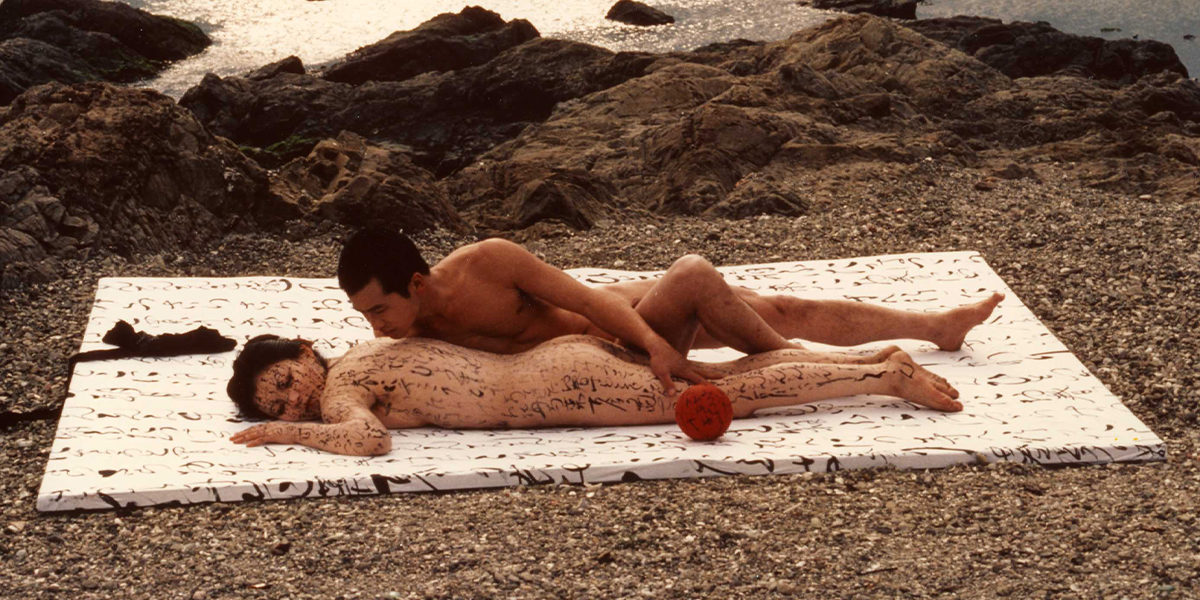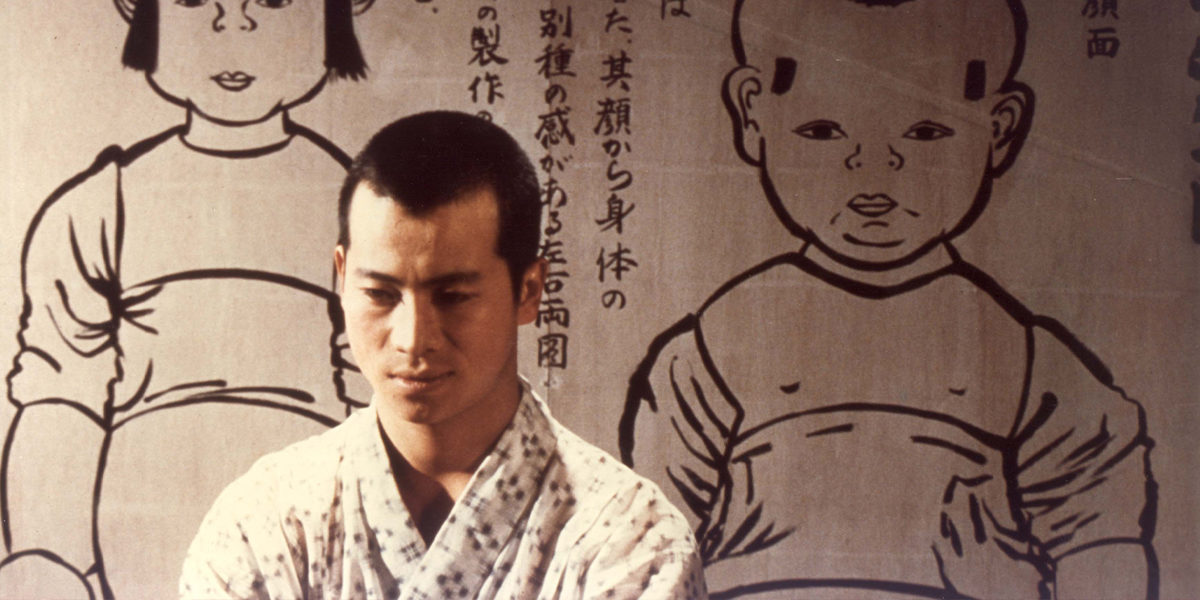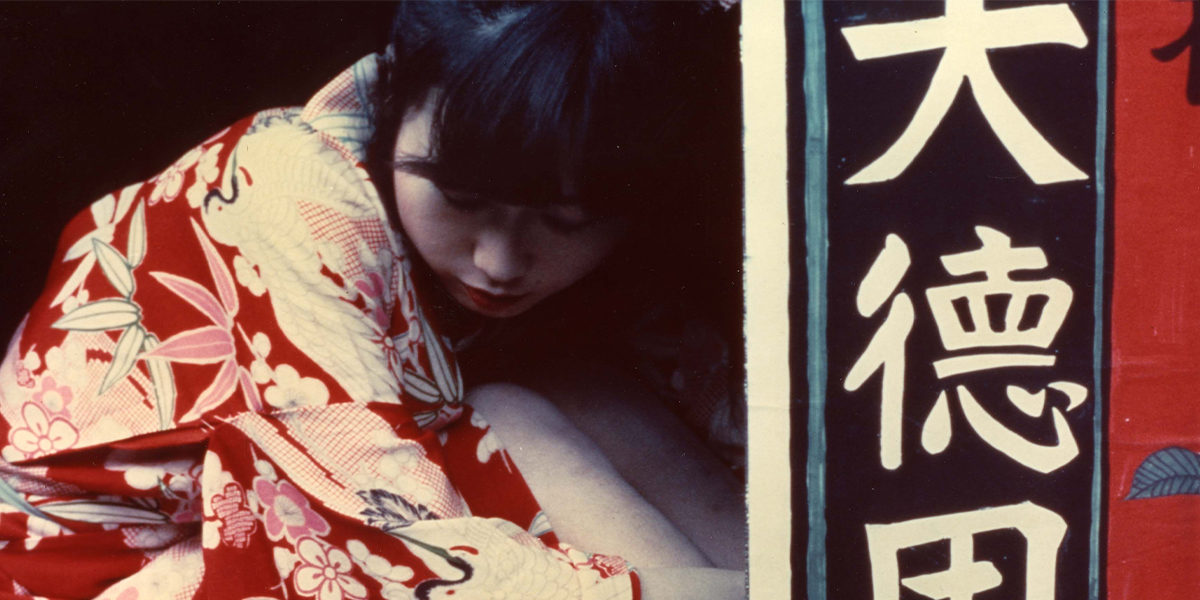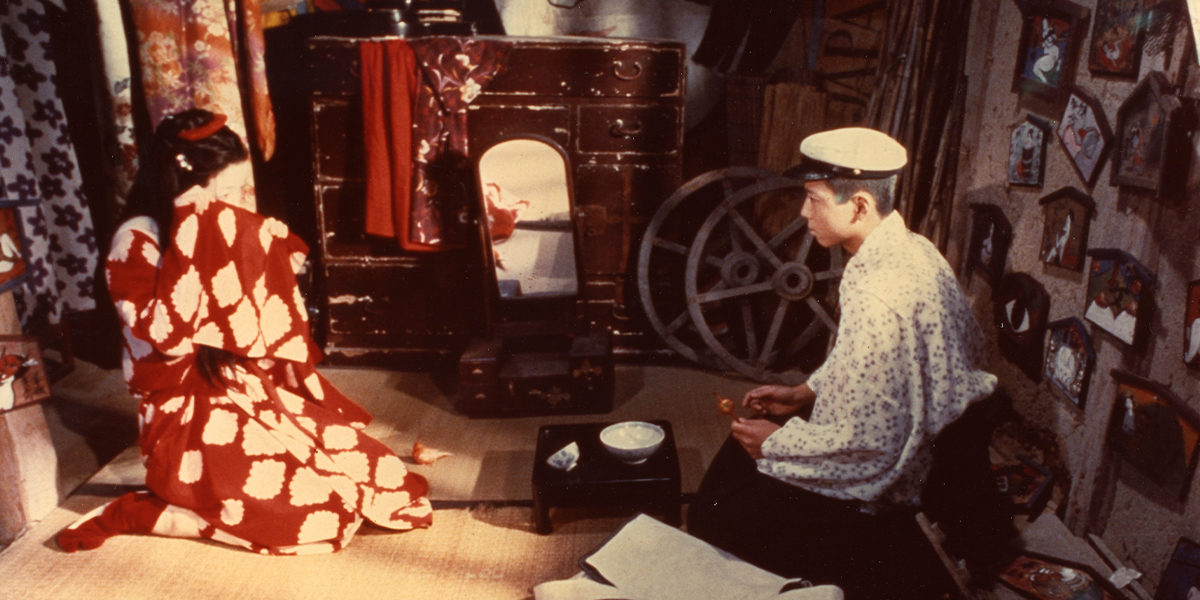-

© 1979 FILMS DU JEUDI ©1979 Les Films du Jeudi-Toei -

© 1979 FILMS DU JEUDI ©1979 Les Films du Jeudi-Toei -

© 1979 FILMS DU JEUDI ©1979 Les Films du Jeudi-Toei -

© 1979 FILMS DU JEUDI ©1979 Les Films du Jeudi-Toei
Directed by: Shuji Terayama
1979
/ 40 minutes
/ Unclassified 18+
The murkiness and binds of memory
Originally included in a French movie package called Private Collections, Grass Labyrinth unfolds as an emblematic palette of Terayama’s favourite themes and imagery. The story revolves around a young boy’s Oedipal obsession with the lyrics to a lullaby about a bouncing ball that his mother used to sing to him as a child. His journey takes him through lost memories and forgotten experiences that ultimately seem to unfold an unforgivable and long-hidden truth. Grass Labyrinth is a tale about attraction, obsession, seduction and sexual repression, all elegantly unraveled through Terayama’s symbolic and erotic storytelling techniques and unique choice of landscapes and colours. The avant-garde intermingling of media reaches its peak in the unconventional yet sensual image of a calligraphed naked body on a seashore, suggesting how the body itself is a canvas for us to paint our story onto and a channel to express our true and deepest desires.
Cancelled due to COVID-19 pandemic
National Film and Sound Archive, Canberra
Palace James Street, Brisbane
*Please note that the post-film talk event has been cancelled due to unforeseen circumstances
The Chauvel Cinema, Sydney
ACMI, Melbourne
Director: Shuji Terayama
Cast: Hiroshi Mikami, Takeshi Wakamatsu, Keiko Niitaka and Yasumi Nakasuji
Genre: Special Series
Category: Free, Shuji Terayama, Special Events
Language(s): Japanese with English subtitles
Format: 35mm colour
This film is part of JFF 2021’s Special Series which honours the prolific and multifaceted artistic career of Shūji Terayama (1935-1983). From the mid 1960s to the early 1970s, Angura (underground) theatre, which imported ‘freak show’ elements, twisted eroticsm and the reinstatement of folklore that had been excluded from modern theatre, reached its zenith in Japan as an anti-establishment movement. Terayama founded the internationally acclaimed theatre troop ‘Tenjō Sajiki’, and was at the centre of this experimental scene. However, his creation was not limited to theatre, and as a filmmaker, poet and social and cultural commentator, he was a leading figure in the ‘expanded cinema’ being explored in post-WWII Japan.
This program presents a handful of the late auteur’s short and feature-length cinematic work showcasing his signature transgressive approach to filmmaking. From dismantling concepts of time, history and myth to visually audacious portrayals of sexual and political revolution–these films are at once unexpectedly beautiful and discomforting.